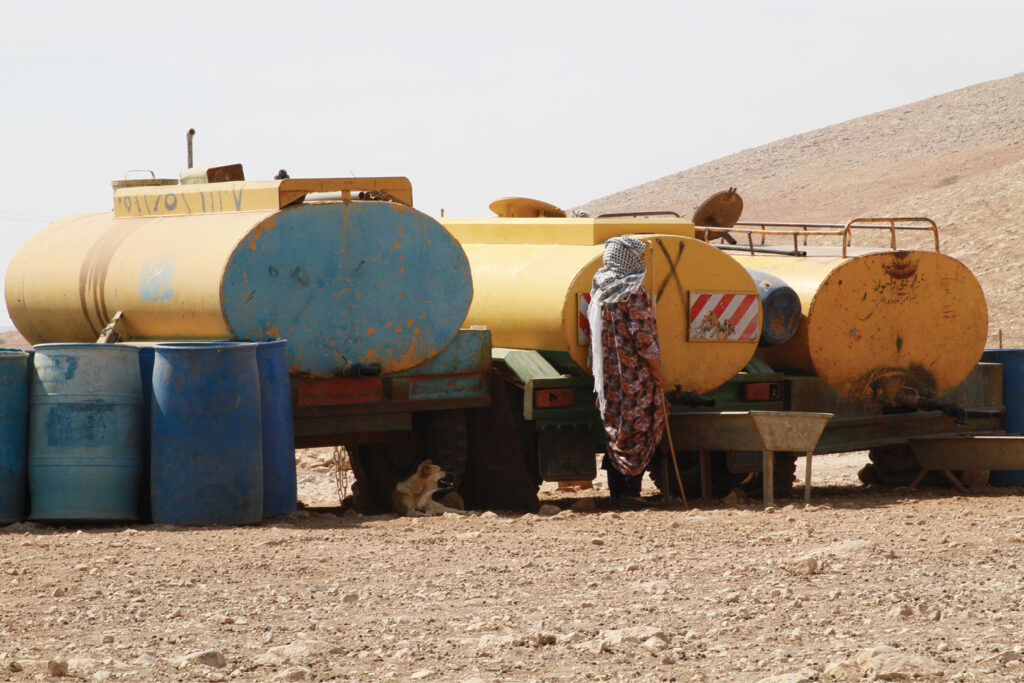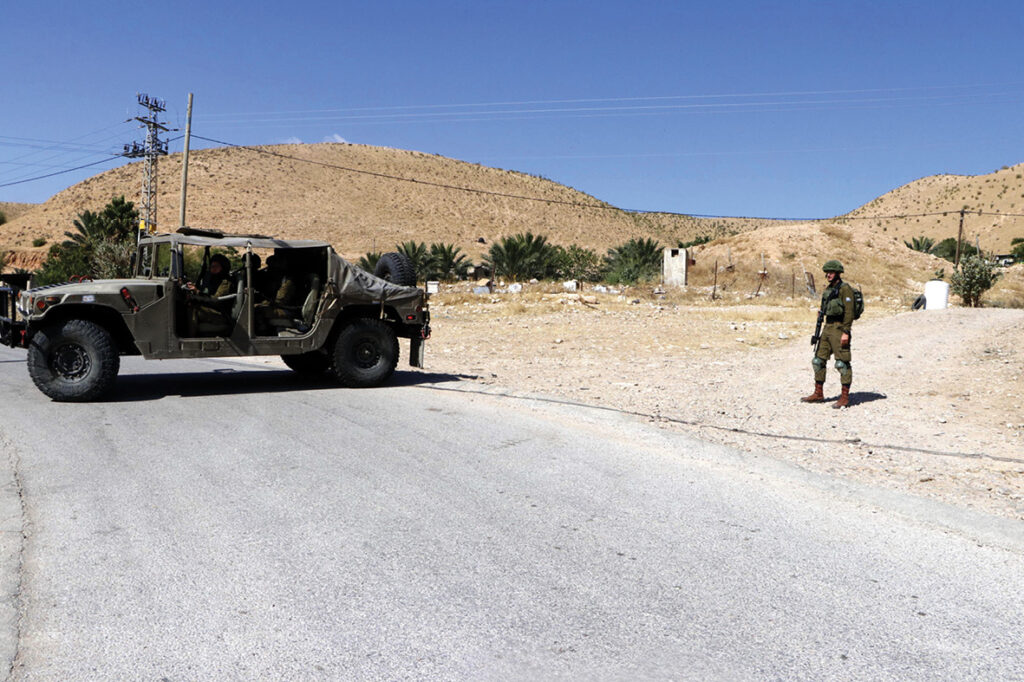As I write this article, we are in the final days before the Jordan Valley will be changed, perhaps irreparably. Israel has announced that it will begin the process of annexing parts of the West Bank on July 1, despite international condemnation and demands that Israel stop the process.
Yet, while a great deal of attention has been paid to the latest plans in the Jordan Valley, overlooked are the more than five decades of Israeli action in the valley that have brought us to this point. Originally sold as necessary for “security,” Israeli actions in the Jordan Valley have a more sinister purpose: to take as much Palestinian land as possible, with as few Palestinians as possible, and to prevent Palestine from ever sharing a border with any country. In other words, these actions seek to, and in fact do create Palestinian islands, and Israel’s holding on to the Jordan Valley is the key to implementing this plan. At the same time, Israel has long sought to deprive Palestinians of vital natural resources in order to divert such resources to Israel, prevent Palestinian development and, again, to hold onto the Jordan Valley, given that it contains one-third of the West Bank’s underground water reserves and is the area where most Palestinian agriculture is grown.
Today, Israel bars Palestinians from entering or using 85 percent of the Jordan Valley, and it has put mechanisms in place – for example, destroying homes, declaring areas closed to Palestinians, and expropriating Palestinian land – to bar Palestinians from farming in the Jordan Valley. At the same time, Israel has built some three dozen Jewish settlements on occupied Palestinian land in the Jordan Valley in violation of international law, with an estimated 11,000 settlers living illegally next to approximately 65,000 indigenous Palestinians who are struggling to hold onto their land and homes. On average, these settlers consume 6 times more water than Palestinians, with settlement agricultural farms consuming 18 times more, as Palestinians are allowed to consume a mere 20 liters of water per day, well below the WHO standard of 100 liters per person per day. What this means in practice is that while Israeli settlers farm water-demanding crops such as bananas (while the Jordanians are castigated for doing the same), Palestinian farmers must find creative ways to grow the few and necessary crops needed for the Palestinian table. In short, Israel already controls the Jordan Valley but wants to retain permanent control and give it a semblance of “legality” so that it can continue to steal Palestinian water resources and ensure that any Palestinian “state” that emerges would be completely surrounded by Israeli territory on all sides. In other words, the system is apartheid.

This leads to the logical question: If Israel already has what it wants, why does it pursue this course of action? Some argue that it is for “security” reasons, and indeed, in supporting the annexation, Gantz has indicated that the annexation of the Jordan Valley is necessary for long-term security. But with the 1994 Jordan-Israel Peace Treaty, Israel’s claim that it needs the land for “security reasons” was debunked. Why would it need a buffer zone with a country with which it has diplomatic ties, particularly when Jordan has gone out of its way – unlike Israel – to ensure that the treaty is upheld? Are these the same “security” reasons that have led Israel to bar radiation treatment in all Palestinian hospitals, thereby requiring Palestinian cancer patients to be treated outside the West Bank and Gaza Strip? Or perhaps they are the same “security” reasons that serve as the excuse to prevent the construction of a school made out of tires and mud, such as in Khan al-Ahmar?
So, if security is not the reason, why does Israel persist with the annexation plans? Simply put, because it can. For decades, the international community has done little to stop the land theft, and there is no reason to think that this time around will be any different. As Netanyahu now faces a corruption trial, he is looking to transform his legacy from that of a corrupt, repressive leader to one of a hero who expanded Israel and valiantly stood up to the international community. For the settlers, annexing the Jordan Valley is merely a first step in the annexation of the entire West Bank. In short, the Jordan Valley is simply a tool that serves to distract people from a corruption trial or the means to create Greater Israel.

n annexing Palestinian land, Netanyahu has already said that the residents of the Jordan Valley would not be given Israeli citizenship. We do not know what annexation will look like, but we’ve had more than five decades of hints: we will likely witness increased home demolitions, increased attacks on Palestinians and their lands by settlers and soldiers, increased restrictions on movement, and more requirements to apply for new permits, all amounting to “death by a thousand cuts” in an attempt to rid the Jordan Valley of those who have survived its harsh climate, the Israeli land and water theft, and so on.
On my most recent visit to one farming community, I drove along Highway 90, the main artery of the Jordan Valley, which, more than a decade ago, was renamed “Gandhi’s Road.” No, it was not renamed after Mahatma Gandhi but after a man named Rehavam Gandhi Ze’evi, a former Israeli Member of Knesset who openly advocated the ethnic cleansing of Palestinians. I cannot help but think how fitting it is that the area that will likely soon be the subject of the harshest measures of Israel’s occupation would have a main road named after a person who believes that we have no right to be there in the first place.
In meeting after meeting with people in the Jordan Valley, I am assured that the resilience will be redoubled. I am under no illusion about the strength of people to endure, but there certainly are times when I question why we must endure; why that has become our fate in life. It is easy to feel dismayed – and I do – by the world that has let this continue. Yet, I have taken inspiration from one of the activists I met in the Jordan Valley, a farmer and local council member in the village of Bardala, who upon hearing my frustration quickly reminded me, “We are from this place; we know it’s every inch. We have survived the Ottomans, the English, and the Israelis.” And eventually, he assured me, “Don’t worry, they will leave. We are here to stay.”


